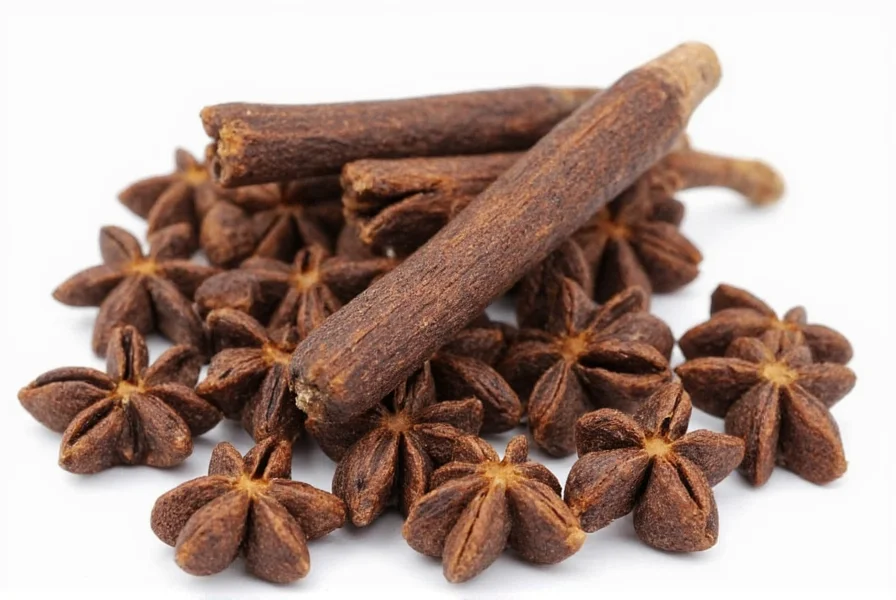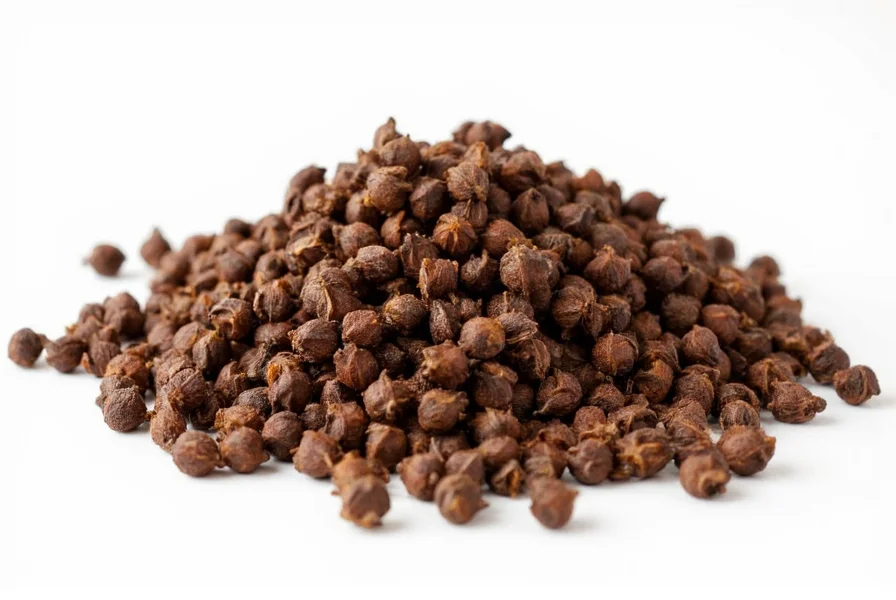Cloves meaning extends far beyond their role as a common kitchen spice. These small but potent buds have shaped global trade routes, inspired cultural rituals, and maintained significance in traditional medicine systems for centuries. Understanding the full scope of cloves meaning requires examining their botanical origins, historical journey, and the diverse symbolic interpretations they've accumulated across different societies.
Etymology and Linguistic Evolution
The word “clove” entered the English language in the late 18th century from the French “clou,” which itself traces back to the Latin “clavus” (nail). This naming reflects the distinctive shape of the dried flower buds, which resemble small nails with a bulbous head. In various languages, cloves meaning has maintained this physical reference while acquiring additional cultural connotations.
Historically, cloves were so valuable that they were often worth more than their weight in gold. This extraordinary value influenced how different cultures incorporated cloves meaning into their economic systems, religious practices, and social customs. The linguistic journey of the word mirrors the spice's global migration from its native Indonesian islands to kitchens and apothecaries worldwide.

Botanical Identity and Characteristics
Cloves (Syzygium aromaticum) are the unopened flower buds of an evergreen tree in the myrtle family. Native to the Maluku Islands (also known as the Spice Islands) of Indonesia, these trees can grow up to 40 feet tall and begin producing harvestable buds when they reach 6-10 years of age.
The harvesting process significantly impacts cloves meaning in culinary contexts. Buds are picked by hand when they transition from green to pink, then sun-dried until they turn their characteristic reddish-brown color. This careful process preserves the essential oil content, primarily eugenol, which constitutes 70-90% of clove oil and gives cloves their distinctive aroma and flavor.
Historical Significance and Trade Routes
The history of cloves meaning is intertwined with global exploration and colonial ambitions. For centuries, the Maluku Islands maintained a monopoly on clove production, with local rulers enforcing strict controls to preserve their economic advantage. Arab traders initially dominated the clove trade, creating elaborate myths about their origins to protect their commercial interests.
European powers later waged wars specifically to control clove-producing regions. The Dutch East India Company went to extreme lengths to maintain their monopoly, including destroying clove trees on islands they didn't control. This historical context adds a complex layer to cloves meaning, transforming them from simple spice to symbols of power, exploitation, and cultural exchange.
Cultural Symbolism Across Civilizations
Cloves meaning varies significantly across different cultural contexts, reflecting their widespread adoption and adaptation:
| Culture | Symbolic Meaning | Traditional Use |
|---|---|---|
| Chinese | Respect and communication | Offered as gifts to rulers since Han Dynasty (206 BC–220 AD) |
| Indian | Purification and protection | Used in religious ceremonies and wedding rituals |
| European Medieval | Wealth and status | Indicated social standing; used to prevent disease |
| African Traditional | Protection and spiritual cleansing | Burned to ward off negative energy |
In many Asian cultures, cloves meaning includes associations with love and fidelity. Traditional Indonesian wedding ceremonies often incorporate cloves as symbols of enduring commitment. Similarly, in some Middle Eastern traditions, cloves placed in pockets or sewn into clothing represent protection during travel.
Medicinal Interpretations of Cloves Meaning
The therapeutic applications of cloves have significantly shaped their meaning in traditional medicine systems. Ayurvedic practitioners have used cloves for thousands of years to address dental pain, digestive issues, and respiratory conditions. Traditional Chinese Medicine incorporates cloves meaning as a “warming” agent that stimulates circulation and supports kidney function.
Modern research validates many traditional uses of cloves, particularly their antimicrobial and anti-inflammatory properties. The high eugenol content explains why clove oil remains a common ingredient in dental products. Understanding cloves meaning in medical contexts requires recognizing both historical applications and contemporary scientific validation.

Contemporary Cultural Significance
In today's globalized world, cloves meaning continues to evolve while maintaining connections to historical traditions. In culinary contexts, they remain essential in spice blends like garam masala, pumpkin spice, and Chinese five-spice powder. Their distinctive flavor profile makes them irreplaceable in certain traditional dishes across multiple cuisines.
Symbolically, cloves have found new expressions in modern practices. Some contemporary spiritual traditions incorporate cloves meaning into rituals for protection and prosperity. The practice of studding oranges with cloves (creating “clove pomanders”) has persisted as both a natural air freshener and symbolic object representing health and good fortune.
Practical Applications Beyond Flavor
Exploring cloves meaning reveals their versatility extends far beyond culinary uses:
- Natural preservative - Their antimicrobial properties make cloves effective for food preservation
- Insect repellent - Clove oil deters mosquitoes and other pests
- Natural dye - Produces rich brown and tan colors for fabrics
- Ritual object - Used in various religious and spiritual ceremonies worldwide
- Aromatherapy - Clove scent promotes mental clarity and focus
When selecting cloves, look for those that are reddish-brown, whole, and heavy for their size—indicating high essential oil content. Properly stored in an airtight container away from light, cloves meaning in your kitchen can remain potent for up to one year, though freshly ground cloves always provide the most vibrant flavor and aroma.
Frequently Asked Questions
What is the symbolic meaning of cloves in different cultures?
Cloves carry diverse symbolic meanings across cultures. In Chinese tradition, they represent respect and communication, historically offered as gifts to rulers. Indian cultures associate cloves with purification and protection, using them in religious ceremonies. Medieval Europeans viewed cloves as symbols of wealth and status, while many African traditions use cloves for spiritual cleansing and protection against negative energy.
Why are they called cloves?
The term 'clove' comes from the Latin word 'clavus,' meaning 'nail,' due to the dried flower buds' distinctive nail-like shape. This naming reflects their physical appearance with a slender stem and bulbous head. The word entered English in the late 18th century from the French 'clou,' which also means 'nail.'
What are the primary historical uses of cloves?
Historically, cloves served multiple important purposes: as highly valued trade commodities that shaped global exploration, in traditional medicine systems for dental pain and digestive issues, in religious and wedding ceremonies across various cultures, and as natural preservatives. Their extraordinary value led to wars fought specifically to control clove-producing regions, particularly the Maluku Islands of Indonesia.
How do cloves differ from other spices in cultural significance?
Cloves possess unique cultural significance compared to other spices due to their historical role in global trade wars, their distinctive nail-like shape influencing their name across languages, and their widespread adoption in diverse religious rituals. Unlike many spices that remained regionally significant, cloves became globally recognized symbols of protection, love, and prosperity across completely unrelated cultures from China to Africa to Europe.










 浙公网安备
33010002000092号
浙公网安备
33010002000092号 浙B2-20120091-4
浙B2-20120091-4